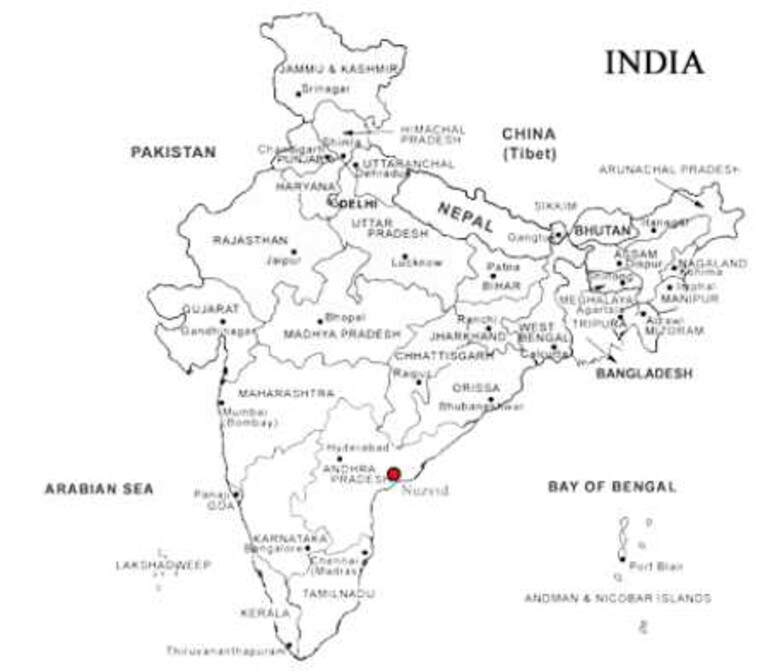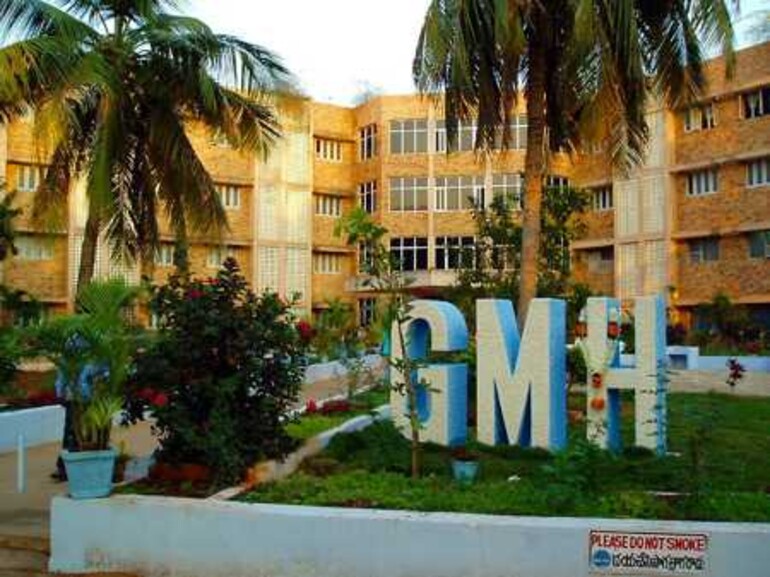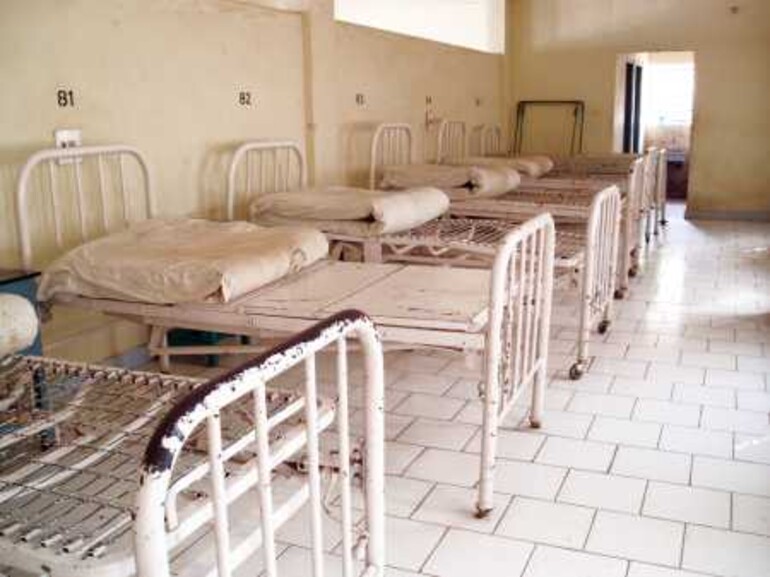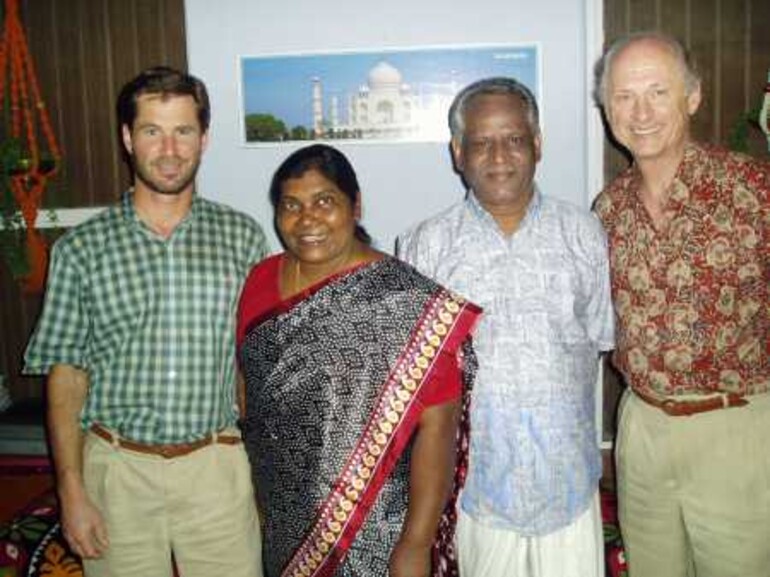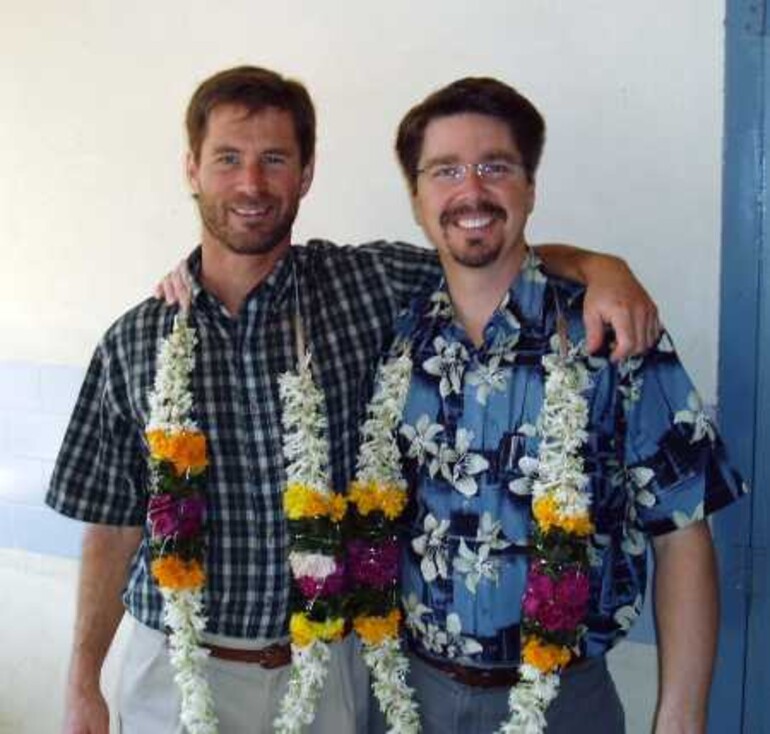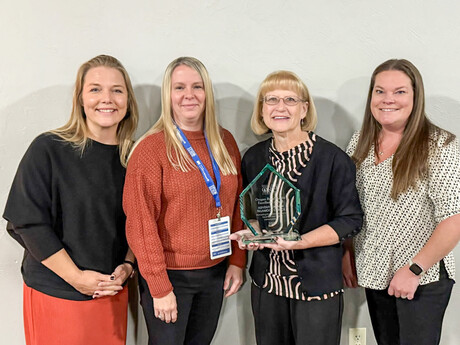Lending Helping Hands in India Giffard Memorial Hospital (GMH), a Seventh-day Adventist facility located in the village of Nuzvid, Andhra Pradesh, India, was once a thriving medical compound. Built in 1925, it was renowned for its quality of care and its dynamic nursing school. In recent years, however, GMH spiraled downward and faced imminent closure. In an effort to rescue the aged institution, Adventist Health International (AHI) accepted GMH, along with 11 other Adventist Indian hospitals, into its program last year. AHI is a non-profit organization established to provide management and technical assistance to church-owned hospitals in developing countries. Adventist Health Pitches In Headquartered in Roseville, Calif., Adventist Health is one of eight major contributors to AHI, thanks to the efforts of AHI vice president Rodney Applegate. Formerly an executive with Adventist Health, Applegate retired as CEO of Walla Walla General Hospital in southeastern Washington in June 1999. He now focuses his attention on AHI efforts in India. Working closely with Applegate, Larry Dodds, Adventist Health senior vice president, serves on the AHI board of directors. During a July 2003 devotional, Applegate spoke of severe hospital needs in India, and Adventist Health corporate leadership and hospitals gave a $16,000 offering. Applegate spoke again in October at an Adventist Health leadership meeting. Charles Denham, a doctor and Christian consultant in attendance, was touched by Applegate’s comments and the faith-based mission of Adventist Health. As a result, he and his wife, Betsy, sent AHI a $25,000 donation. More funds were raised in Southern California. Then Richard H. Hart, president of AHI, secured a matching donation from the oldest Adventist church-sponsored social action ministry, Ingathering: Hope for Humanity. In all, the India project brought in $110,000—worth more than $1 million in Indian currency. A Mission Trip to India In early February 2004, two Adventist Health employees joined Applegate on a mission trip to offer much-needed professional assistance to GMH. Kevin Roberts, chief operations officer and chief nursing officer at South Coast Medical Center in Laguna Beach, Calif., and Marvin Stiles, corporate senior analyst at Adventist Health in Roseville, traveled to Bombay and then on to the remote, poverty-stricken village of Nuzvid. “When we arrived, an entourage met us bearing gifts of ornate Indian garlands,” Roberts shared. “They fed us and treated us like royalty. The Hindus know Rodney well and think of him as a god. He reminded them often that Jesus is the Source of Power—the God who heals.” Sorting Through Challenges The three travelers spent the first few days sorting through the challenges at hand. On the second floor of the four-story medical building, they found about 50 semi-functional hospital beds, circa 1940, with crank handles and worn out mattresses. The first floor houses ancillary and business services. The uninhabitable third floor is a graveyard for antiquated equipment donated by other well-meaning organizations. A nursing school occupies the fourth floor, as do many students, since monkeys destroyed their dormitory roof. The open-air facility has no heating or air conditioning. Mosquitoes buzz about the rooms, bee nests hang from the eaves and monkeys frequent the stairwell. Very few electrical fixtures exist, and there is no emergency generator. None of the employees had been paid in more than three months. “The hospital staff—more than 150 employees—were caring for only three or four patients when we arrived,” Roberts reported. “With virtually no census and no money, the hospital was suffering a monumental financial crisis.” The Team Pitches In With less than two weeks to accomplish as much as possible, the trio got right to work. Funds sent from AHI were used to pay off immediate debt. Stiles improved upon an antiquated bookkeeping system—complete with ledgers, pencils and handwritten invoices—by installing a computerized accounting system. He also trained the staff. “I was impressed by how clever they are,” said Stiles. “They took to the computers quickly. We taught them improved methods of handling cash, too, since most bills are paid with cash.” As a patient care executive and an experienced operations consultant, Roberts focused on improving clinical and administrative functions. He interviewed medical staff, hospital leaders and community representatives in order to make valuable recommendations. Together, the men delivered intensive training and advised the leadership team. Two major diseases prevail in Nuzvid—HIV and diabetes. “We met with a vendor that proposed grant money to help with an HIV study,” Roberts explained. “Also, I designed a business plan to develop a diabetes management program at the clinic. I offered to continue consulting from afar to help put these plans in motion.” Devotion in the Face of Calamity In stark contrast to the dilapidated conditions and the mountain of unpaid debt, an inspiring attitude prevails. “The staff has a trust in God that most of us only read about,” Roberts exclaimed. “They come to work, even though they aren’t always paid. They support the hospital administration. They are extensions of the church's ministry.” Roberts described how the nurses worship together before every shift. “They sing and pray with the patients and with each other,” he said. “I saw Jesus in their faces.” There’s More Work to Do GMH isn’t out of the woods yet. There is a great need for physicians. “If the hospital could recruit a foreign-trained physician to work there for just three short months, that physician would bring in enough patients and income to equal a locally-trained physician for a year,” Roberts pointed out. “And the more specialized a doctor is, the more utility he has to the institution and the reputation of the hospital.” Cash contributions are urgently needed as well. “Turning a hospital around is intensive, time consuming and expensive,” said Hart. “India presents some of the most difficult management challenges in the world. AHI sincerely appreciates having Adventist Health as a major partner. We are grateful for the funding, and we are delighted that Adventist Health is providing personnel who are willing to go to India.”
Lending Helping Hands in India
Giffard Memorial Hospital (GMH), a Seventh-day Adventist facility located in the village of Nuzvid, Andhra Pradesh, India, was once a thriving medical compound. Built in 1925, it was renowned for its quality of care and its dynamic nursing school. In recent years, however, GMH spiraled downward and faced imminent closure.
In an effort to rescue the aged institution, Adventist Health International (AHI) accepted GMH, along with 11 other Adventist Indian hospitals, into its program last year. AHI is a non-profit organization established to provide management and technical assistance to church-owned hospitals in developing countries.
Adventist Health Pitches In
Headquartered in Roseville, Calif., Adventist Health is one of eight major contributors to AHI, thanks to the efforts of AHI vice president Rodney Applegate. Formerly an executive with Adventist Health, Applegate retired as CEO of Walla Walla General Hospital in southeastern Washington in June 1999. He now focuses his attention on AHI efforts in India.
Working closely with Applegate, Larry Dodds, Adventist Health senior vice president, serves on the AHI board of directors. During a July 2003 devotional, Applegate spoke of severe hospital needs in India, and Adventist Health corporate leadership and hospitals gave a $16,000 offering.
Applegate spoke again in October at an Adventist Health leadership meeting. Charles Denham, a doctor and Christian consultant in attendance, was touched by Applegate’s comments and the faith-based mission of Adventist Health. As a result, he and his wife, Betsy, sent AHI a $25,000 donation.
More funds were raised in Southern California. Then Richard H. Hart, president of AHI, secured a matching donation from the oldest Adventist church-sponsored social action ministry, Ingathering: Hope for Humanity.
In all, the India project brought in $110,000—worth more than $1 million in Indian currency.
A Mission Trip to India
In early February 2004, two Adventist Health employees joined Applegate on a mission trip to offer much-needed professional assistance to GMH. Kevin Roberts, chief operations officer and chief nursing officer at South Coast Medical Center in Laguna Beach, Calif., and Marvin Stiles, corporate senior analyst at Adventist Health in Roseville, traveled to Bombay and then on to the remote, poverty-stricken village of Nuzvid.
“When we arrived, an entourage met us bearing gifts of ornate Indian garlands,” Roberts shared. “They fed us and treated us like royalty. The Hindus know Rodney well and think of him as a god. He reminded them often that Jesus is the Source of Power—the God who heals.”
Sorting Through Challenges
The three travelers spent the first few days sorting through the challenges at hand. On the second floor of the four-story medical building, they found about 50 semi-functional hospital beds, circa 1940, with crank handles and worn out mattresses. The first floor houses ancillary and business services. The uninhabitable third floor is a graveyard for antiquated equipment donated by other well-meaning organizations. A nursing school occupies the fourth floor, as do many students, since monkeys destroyed their dormitory roof.
The open-air facility has no heating or air conditioning. Mosquitoes buzz about the rooms, bee nests hang from the eaves and monkeys frequent the stairwell. Very few electrical fixtures exist, and there is no emergency generator. None of the employees had been paid in more than three months.
“The hospital staff—more than 150 employees—were caring for only three or four patients when we arrived,” Roberts reported. “With virtually no census and no money, the hospital was suffering a monumental financial crisis.”
The Team Pitches In
With less than two weeks to accomplish as much as possible, the trio got right to work. Funds sent from AHI were used to pay off immediate debt. Stiles improved upon an antiquated bookkeeping system—complete with ledgers, pencils and handwritten invoices—by installing a computerized accounting system. He also trained the staff.
“I was impressed by how clever they are,” said Stiles. “They took to the computers quickly. We taught them improved methods of handling cash, too, since most bills are paid with cash.”
As a patient care executive and an experienced operations consultant, Roberts focused on improving clinical and administrative functions. He interviewed medical staff, hospital leaders and community representatives in order to make valuable recommendations. Together, the men delivered intensive training and advised the leadership team.
Two major diseases prevail in Nuzvid—HIV and diabetes. “We met with a vendor that proposed grant money to help with an HIV study,” Roberts explained. “Also, I designed a business plan to develop a diabetes management program at the clinic. I offered to continue consulting from afar to help put these plans in motion.”
Devotion in the Face of Calamity
In stark contrast to the dilapidated conditions and the mountain of unpaid debt, an inspiring attitude prevails. “The staff has a trust in God that most of us only read about,” Roberts exclaimed. “They come to work, even though they aren’t always paid. They support the hospital administration. They are extensions of the church's ministry.”
Roberts described how the nurses worship together before every shift. “They sing and pray with the patients and with each other,” he said. “I saw Jesus in their faces.”
There’s More Work to Do
GMH isn’t out of the woods yet. There is a great need for physicians. “If the hospital could recruit a foreign-trained physician to work there for just three short months, that physician would bring in enough patients and income to equal a locally-trained physician for a year,” Roberts pointed out. “And the more specialized a doctor is, the more utility he has to the institution and the reputation of the hospital.”
Cash contributions are urgently needed as well. “Turning a hospital around is intensive, time consuming and expensive,” said Hart. “India presents some of the most difficult management challenges in the world. AHI sincerely appreciates having Adventist Health as a major partner. We are grateful for the funding, and we are delighted that Adventist Health is providing personnel who are willing to go to India.”





